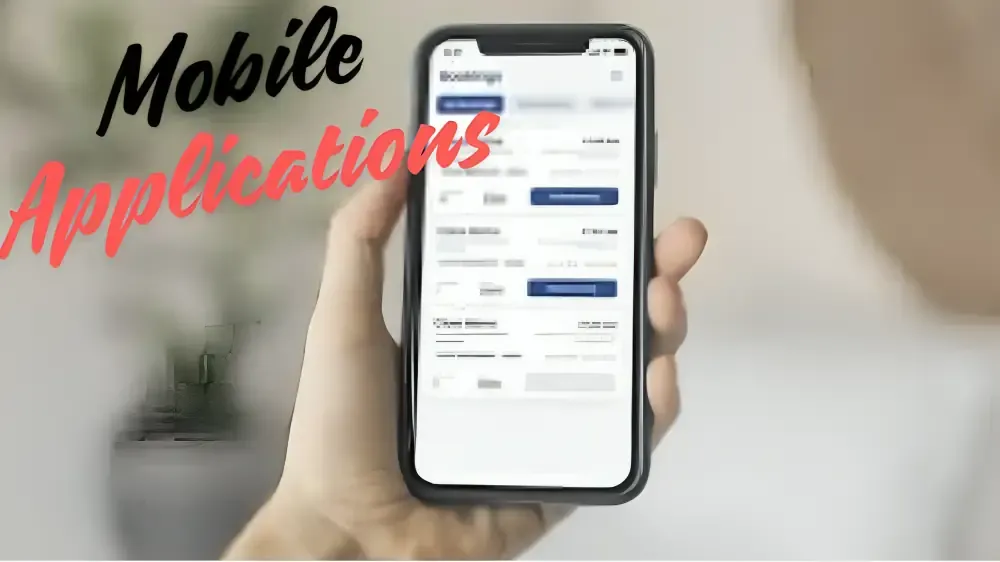Can't imagine life without them? Mobile apps now rule our days. (Straightforward and emphasizes their dominance). These versatile software programs, designed specifically for handheld devices like smartphones and tablets, have revolutionized the way we communicate, access information, and conduct business.
 |
| Mobile Applications: A Comprehensive Overvie |
What are Mobile Applications?
Mobile applications, often referred to as "apps," are software programs tailored for use on mobile devices. Unlike traditional desktop or laptop applications, apps are designed to leverage the unique capabilities of smartphones and tablets, such as touchscreens, cameras, and location services. This allows apps to provide a more interactive and immersive user experience.
Types of Mobile Applications
The vast array of mobile applications can be broadly categorized into two main types:
- Native Apps: These apps are developed specifically for a particular mobile operating system, such as iOS for Apple devices or Android for Google devices. Native apps are known for their high performance and ability to take full advantage of device features.
- Web Applications: These apps are developed using web technologies like CSS, JavaScript and HTML. Web apps can be accessed through a mobile device's web browser, eliminating the need for installation. They offer cross-platform compatibility, meaning they can work on various devices and operating systems.
How Mobile Applications Work
Mobile applications function by interacting with the mobile device's operating system and hardware components. When a user launches an app, it communicates with the operating system to access device resources such as the camera, GPS, and internet connection. The app then utilizes this information to deliver its specific features and services to the user.
Benefits of Mobile Applications
Mobile applications offer a multitude of advantages that have propelled their widespread adoption:
- Convenience: Apps provide easy access to information and services anytime, anywhere, from the palm of your hand.
- Personalization: Many apps can be customized to suit individual preferences, providing a tailored user experience.
- Offline Access: Certain apps can function without an internet connection, ensuring access to essential information even when offline.
- Push Notifications: Apps can send real-time alerts and updates, keeping users informed about important events or changes.
 |
| Mobile Applications |
Drawbacks of Mobile Applications
Despite their numerous benefits, mobile applications also present some limitations:
1-Limited Functionality: Apps may not offer the same level of functionality as their desktop counterparts due to hardware and resource constraints.
2-Compatibility Issues: Apps are designed for specific operating systems and may not be compatible with all devices.
3-Security Concerns: Apps that access sensitive data raise security concerns, as they could be vulnerable to breaches or malware attacks.
4-Update Dependency: Apps may require regular updates, which can be inconvenient and may disrupt functionality if not installed promptly.
The Future of Mobile Applications
With the continuous advancements in mobile technology, the future of mobile applications holds immense potential. Here are some anticipated trends:
- Emerging Technologies: Integration of technologies like augmented reality, artificial intelligence, and the Internet of Things will enhance app capabilities and user experiences.
- Personalized Experiences: Apps will become more personalized, adapting to individual preferences and behaviors, providing a more intuitive and engaging user journey.
- Niche Applications: The development of niche apps catering to specific needs and interests will continue to expand, further enriching the app ecosystem.
Conclusion
Mobile applications have revolutionized the way we interact with technology, transforming our daily lives. As technology evolves, mobile apps are poised to play an even more significant role in shaping our future, providing innovative solutions and seamless experiences across various aspects of our lives.

